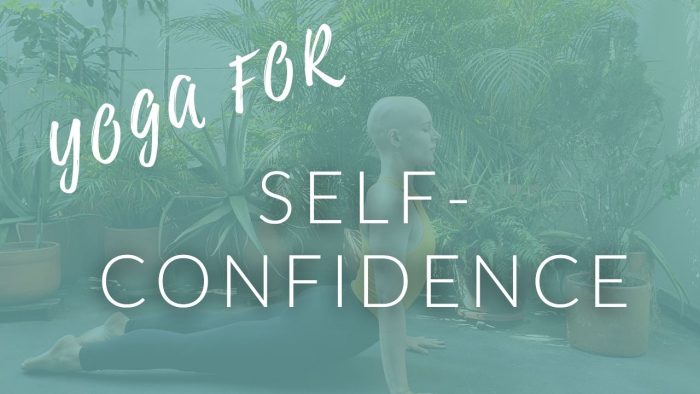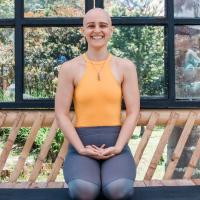How much or how little self-confidence you have is the result of childhood experiences, traumatic events, the relationships in your life, and other interrelated factors.
That suggests that improving self-confidence is a complicated matter. Nonetheless, a healthy amount of confidence in oneself is essential to your mental health.
Improving your opinion of yourself and your abilities is difficult, but not impossible.
Breaking down self-confidence.
Self-confidence has to do with how we perceive ourselves and our abilities But our self-confidence isn’t a simple matter of changing how we think about ourselves. It’s caused by our experiences as children, stressful and traumatic events, negative relationships, negative authority from parents or guardians, and bullying. But working on building confidence is important – it doesn’t just impact how you feel, it also leads to making improvements in the rest of your life.
Yoga For Confidence
Body image is the mental image we have of our body. It’s such a strong belief that it even impacts how you see yourself when you look in the mirror, and it’s an integral component of self-confidence.
Yoga can help us establish a connection to oneself, not only by embodying postures but through breathwork and meditation. That inward connection makes us more aware of our body and our feelings. In this way, one study demonstrated that individuals engaged in 90-minutes of yoga every week felt significant improvements in their body image and self-esteem.
Yoga For Self-Compassion
Self-compassion allows us to acknowledge that we have limitations and flaws and to meet those limitations and flaws with kindness, care, and concern. Self-compassion enables us to see ourselves more objectively and to accept that objective perception with love. Practicing self-compassion therefore reduces the fears and insecurities that cause a lack of self-confidence.
A big underlying philosophy in yoga is compassion and, particularly, compassion for oneself. Yoga makes you more aware of your capabilities and your limitations and encourages you to be accepting and compassionate toward them. That’s true whether it means recognizing how your body feels, how you hold poses, and how challenging you find the class on any particular day.
Yoga For Negative Self Talk
You may notice that your inner critic kicks in whenever something triggers your lack of self-confidence.
Negative self-talk that comes from the inner critic can, over time, cause feelings of depression, affect your ability to focus, increase your stress levels, and even change your biochemistry and hormones.
Yoga addresses negative self-talk with mindfulness. From this heightened state of awareness, we can learn to identify our inner critic and counteract its effects with positive, encouraging, and loving inner dialogue.
Not sure where to start but ready to feel more confident?
Our self-confidence is directly linked to our mental health and well-being, which is why it’s imperative that we have a healthy level of confidence in ourselves. But because it’s linked to childhood experience, trauma, and past relationships, improving confidence can be difficult.
Yoga for self-confidence functions on many levels, including body image, self-compassion, and self-talk. With less than two hours of yoga every week, you’ll start to see significant changes in your perceptions of yourself and your abilities.







Read 0 comments and reply